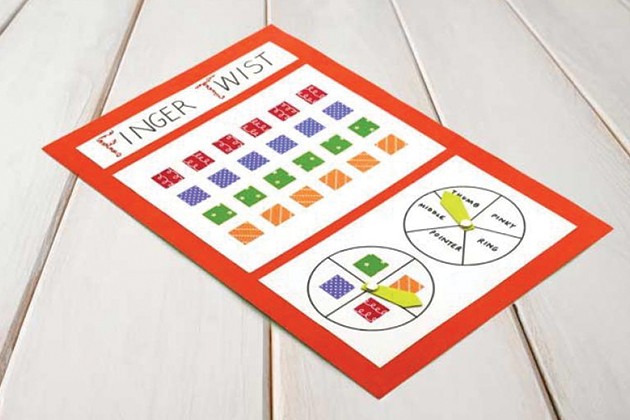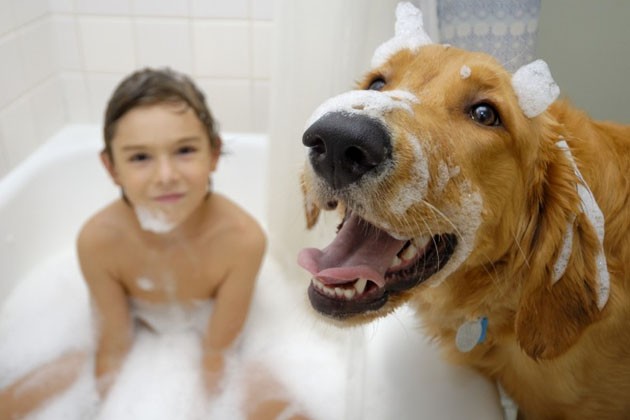Dear Highlights Podcast: Social Media and Kids’ Privacy

The internet was made for posts about cats and kids. But it’s also a massive network storing information about all of us, including kids. How should we think about kids’ privacy online? How do we respect children’s autonomy and help them develop skills to navigate a networked world, while still sharing the most important aspects of our own lives? In a world where sharenting happens (parenting and sharing those experiences online), what are the boundaries?
In this podcast, Editor-in-Chief Christine French Cully and Hillary Bates, Director of Purpose and Impact talk with parents and privacy expert Dr. Michael Robb of Common Sense Media to discuss:
- How kids feel about their parents’ social media posts
- Digital “kidnapping,” medical privacy, and other big concerns
- Tools for negotiating what to post and what not to post
Christine starts by saying she was shocked to learn that “recent studies are suggesting that most kids will have over 1,000 photos of themselves online before they’re even 5 years old.” She adds, “It’s a practice that needs to be approached thoughtfully…and [we need to think about] how it affects kids developing a sense of self and even the parent-child relationship.”
The internet was made for posts about cats and kids. But it’s also a massive network storing information about all of us, including kids.
Hillary mentions that although there are scary stories about sharing information and photos of kids online, those situations are rare. What’s much more common is that parents will be talking about their kids online and their kids, at some point, are going to want a say in how they’re being talked about.
Overall, it’s important to kids, Christine notes, that parents respect their children and respect their privacy, in real life and online.
For this episode, Hillary and Christine sit down with several parents to talk about their experiences with sharing information, photos, and videos about their children online. One parent shared that he posted to Twitter an incident that happened with his 5-year-old about the color of a cup she wanted in a way that he thought was lighthearted and joking. However, when his daughter saw the tweet, she felt like her dad was making fun of her. He says he now thinks more deeply about what he posts and how his children might interpret it.
Another parent detailed her experience with growing an Instagram audience through sharing pictures and videos of her children and her working together on crafts and other fun family projects. She said her kids really loved making the content, and they had a lot of fun together. As the account grew, she explains, her 8-year-old son became focused on how many likes a post got or if a post brought in any new followers. She said that how well a post did became his marker for success. It was really alarming to see her son’s validation came “from an outside source that [they] didn’t have any control over.” She could see he would be sad if a post didn’t do well or think that he had failed in some way. In the end, she decided to stop posting because she realized that under all the fun, there was building stress and anxiety in her kids. She adds that as her kids get older, they may start posting again, but with defined guidelines about what and how they post.
How should we think about kids’ privacy online?
Christine and Hillary bring Dr. Robb into the discussion. Hillary asks about how kids think about what’s posted about them online. Dr. Robb explains that it depends on the age of the kids and what they have access to online. However, even if they don’t have access to social media, kids still have opinions about their online presence.
He mentions that he has two young kids and they talk about what it means to be “YouTube famous,” and they place value on it. He notes that social media is just part of their world, and it’s natural for them to be “interested in that kind of presence.”
Dr. Robb shares that as children enter adolescence, they use social media to hang out with friends, get validation from their peers, and explore and craft an identity. He notes “these are things that adolescents have been doing ever since there was adolescence, but technology allows them to explore those elements in different ways than when we were kids.” When grown-ups post about them, he notes, it “may cut across the image that they’re trying to cultivate.” It’s important to find a balance in what’s being posted and respect the autonomy of both children and grown-ups.
Hillary adds that at Highlights they refer to childhood as a time of “heavy lifting,” and developing a sense of self has always been a part of childhood. She asks about what difficulty is added when the feedback you’re getting is quantifiable (i.e., in likes and number of followers)?
Dr. Robb shares that likes can have an effect on a child’s mood and play an out-sized influence in their lives. Likes can change the way they view social media, taking it from a place to hang out with friends and making it into something that has a competitive aspect.
Christine asks about privacy rights of children who are too young to have social media. Dr. Robb notes that there is a privacy act called the Children’s Online Privacy Act (COPA) that has been around since 2000. COPA requires that companies obtain consent from parents before collecting personal information about children younger than 13.
Although COPA is the legal way to protect children’s privacy, Dr. Robb says there’s interpersonal rights as well. Grown-ups and kids can set boundaries that include:
- Asking permission to share pictures, videos, or stories
- Having conversation about what’s being shared and how
- Thinking critically about what’s shared, beyond the moment of sharing
Hillary points out that having conversations with kids about what’s shared on social media helps them to start thinking about what they’ll eventually control for themselves. They will start thinking about their public self and their private self. Dr. Robb says, “It’s never too late for them to start thinking about their digital footprint.” Kids will be online for the rest of their lives, he notes, so it’s critical to be conscientious about what you put out there.
Hillary brings up where the edges are for what should be included in a child’s digital footprint. Dr. Robbs says that it’s good to ask yourself some questions before sharing highly personal information:
- Who do you want to share it with?
- What platform are you sharing it on?
- How might information from your post be collected?
- Who gets to see that information?
He says that if you’re trying to share information with a smaller group of people, a group text or email might be more appropriate.
Christine asks about digital kidnapping and whether it’s really a concern or is it being alarmist. Digital kidnapping, Dr. Robb says, is taking pictures from another profile and using them as your own. He shares he doesn’t know the exact prevalence of digital kidnapping, but it does happen. He explains, however, there’s a disconnect between how often it actually happens and how much it’s discussed in the news.
Hillary asks if there are resources that grown-ups can use to help kids be good digital citizens. Dr. Robb shares that there’s an advice section on the Common Sense Media website. There’s also an education website for schools. These resources are designed to help kids learn how to be a responsible digital citizen and understand the internet and digital privacy. He also notes that there are digital media contracts that parents can use to set guidelines for themselves and their kids about what’s OK to share and what isn’t.
Dear Highlights addresses the issues around being a kid today and offers parents expert advice to help raise their children to be their best selves. Tune in wherever you listen to your favorite podcasts! We launch a new episode every Tuesday morning.









